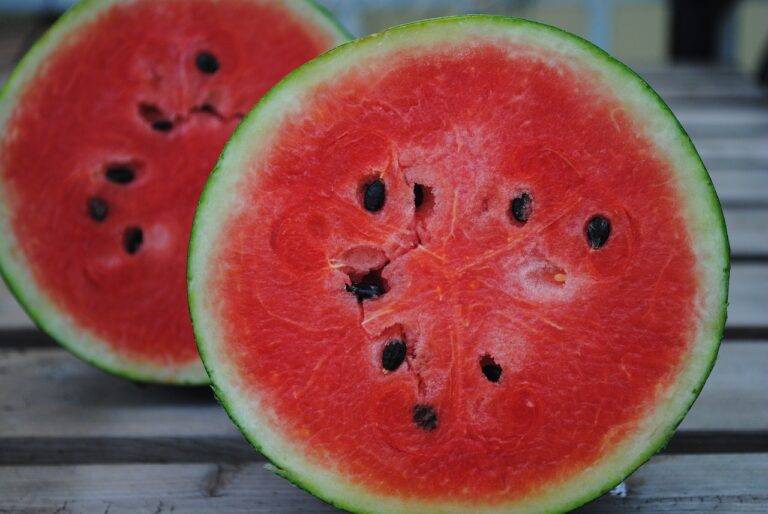Microbrewery Waste Reduction Initiatives: Recycling and Composting: Cricbet 99, Sky1exchange com, Reddy anna book
cricbet 99, sky1exchange com, reddy anna book: Microbrewery Waste Reduction Initiatives: Recycling and Composting
Microbreweries have been popping up all over the country, offering beer enthusiasts unique and flavorful options beyond the typical mass-produced brews. With the rise in popularity of craft beer, there has also been a corresponding increase in waste generated by these small-scale breweries. However, many microbreweries are taking steps to reduce their environmental impact through recycling and composting initiatives.
In this blog post, we will explore some of the ways that microbreweries are working to reduce waste and promote sustainability in their operations. From recycling spent grains to composting organic waste, these initiatives are helping to minimize the environmental footprint of craft beer production.
Reducing Waste Through Spent Grain Recycling
One of the most significant waste streams generated by microbreweries is spent grain, which is the primary byproduct of the brewing process. Spent grain is the leftover malt and adjuncts after they have been mashed and boiled to extract sugars for fermentation. While these spent grains are no longer useful for brewing, they can still serve a valuable purpose.
Many microbreweries are partnering with local farmers to donate their spent grains for use as animal feed. Spent grains are a rich source of protein and fiber, making them an excellent supplement for livestock feed. By diverting spent grains from the waste stream and repurposing them as animal feed, microbreweries can reduce their environmental impact while also supporting local agriculture.
Composting Organic Waste
In addition to spent grains, microbreweries generate other organic waste streams, such as fruit peels, hops, and yeast. These organic materials can be composted to create nutrient-rich soil that can be used to enhance the growth of fruits, vegetables, and other crops.
Many microbreweries are now implementing composting programs to divert organic waste from landfills and create a valuable resource for local farmers and gardeners. By composting organic waste, microbreweries can reduce greenhouse gas emissions produced by organic matter decomposing in landfills while also closing the loop on their sustainability efforts.
Implementing Sustainable Packaging Practices
In addition to recycling and composting initiatives, microbreweries are also implementing sustainable packaging practices to further reduce their environmental impact. Many craft breweries are now using recycled or biodegradable materials for their packaging, such as cardboard boxes, paper labels, and compostable six-pack rings.
By choosing sustainable packaging options, microbreweries can minimize the amount of waste generated by their products and demonstrate their commitment to environmental stewardship. These initiatives not only benefit the planet but also resonate with consumers who are increasingly conscious of the impact of their purchasing decisions.
Engaging Employees and Customers in Sustainability Efforts
To fully embrace waste reduction initiatives, microbreweries are engaging their employees and customers in sustainability efforts. By educating staff on proper recycling and composting practices, microbreweries can ensure that waste is being sorted and disposed of correctly. Additionally, by communicating their sustainability initiatives to customers, microbreweries can inspire them to support their efforts and make more environmentally conscious choices.
Through employee training programs, customer outreach campaigns, and partnerships with local organizations, microbreweries are creating a culture of sustainability that extends beyond their brewery walls. By involving stakeholders at every level of their operations, microbreweries can maximize their impact and create a more sustainable future for the craft beer industry.
FAQs
Q: How can I find a microbrewery that engages in waste reduction initiatives?
A: You can start by researching local microbreweries in your area and reaching out to them to inquire about their sustainability practices. Many breweries will proudly share information about their recycling, composting, and other waste reduction initiatives on their websites or social media pages.
Q: Can I recycle beer bottles and cans from microbreweries?
A: Depending on your local recycling program, you may be able to recycle glass bottles and aluminum cans from microbreweries alongside other recyclable materials. Be sure to check with your local recycling facility or waste management provider for specific guidelines on recycling beverage containers.
Q: How can I support microbreweries that prioritize sustainability?
A: By choosing to purchase beer from microbreweries that prioritize sustainability, you can directly support their waste reduction initiatives. Look for breweries that use recycled or compostable packaging, donate spent grains to local farmers, and engage in other environmentally friendly practices.
In conclusion, microbreweries are leading the way in waste reduction initiatives through recycling, composting, sustainable packaging practices, and engaging stakeholders in sustainability efforts. By embracing these initiatives, microbreweries can minimize their environmental impact while also demonstrating their commitment to protecting the planet. As consumers, we can support these efforts by choosing beer from breweries that prioritize sustainability and making eco-conscious choices in our own lives. Together, we can raise a glass to a more sustainable future for craft beer and beyond.







